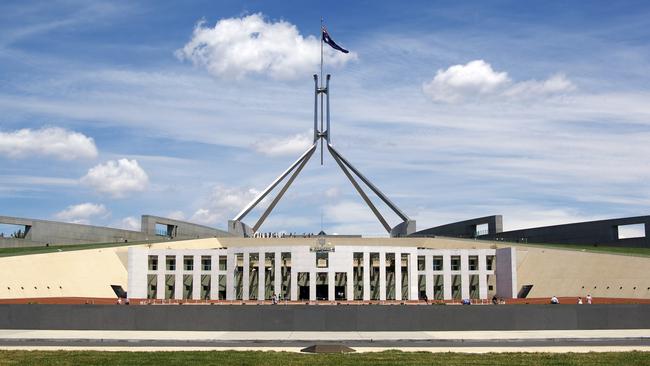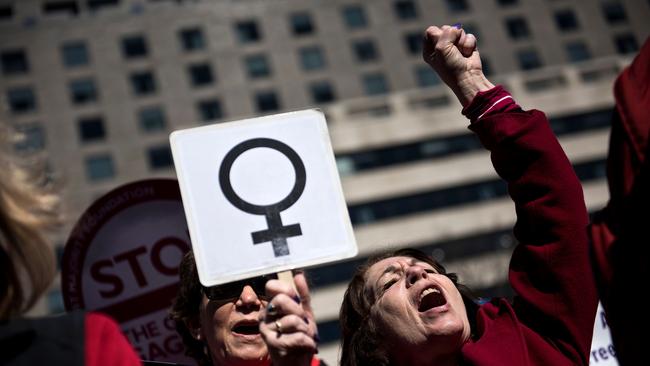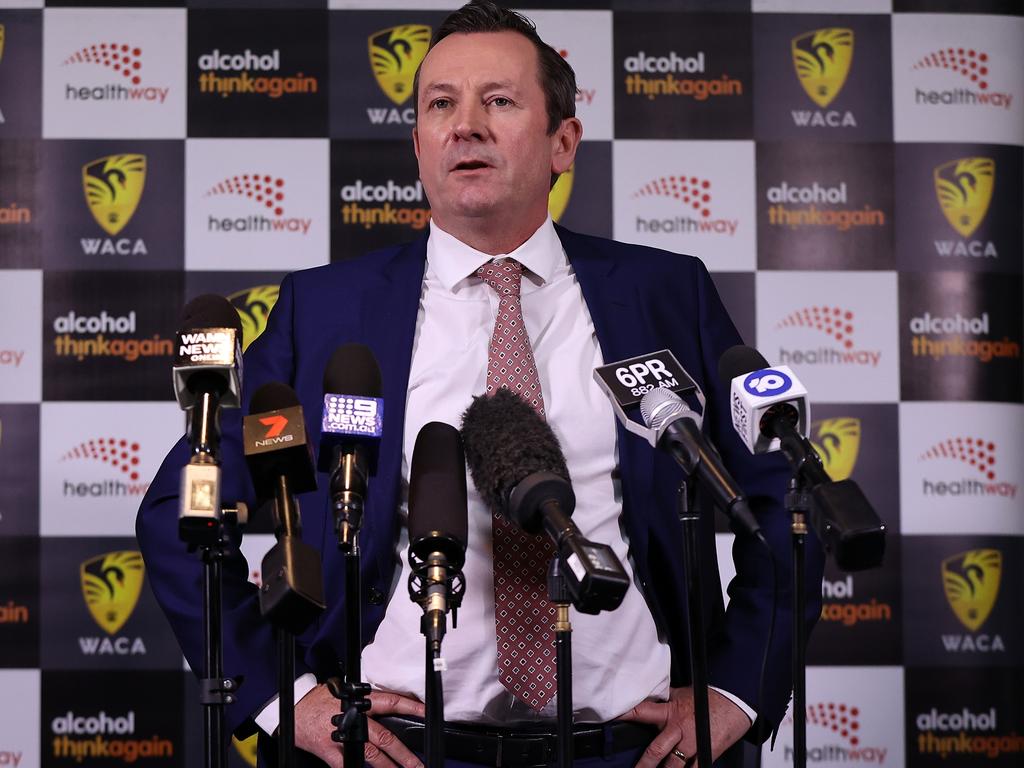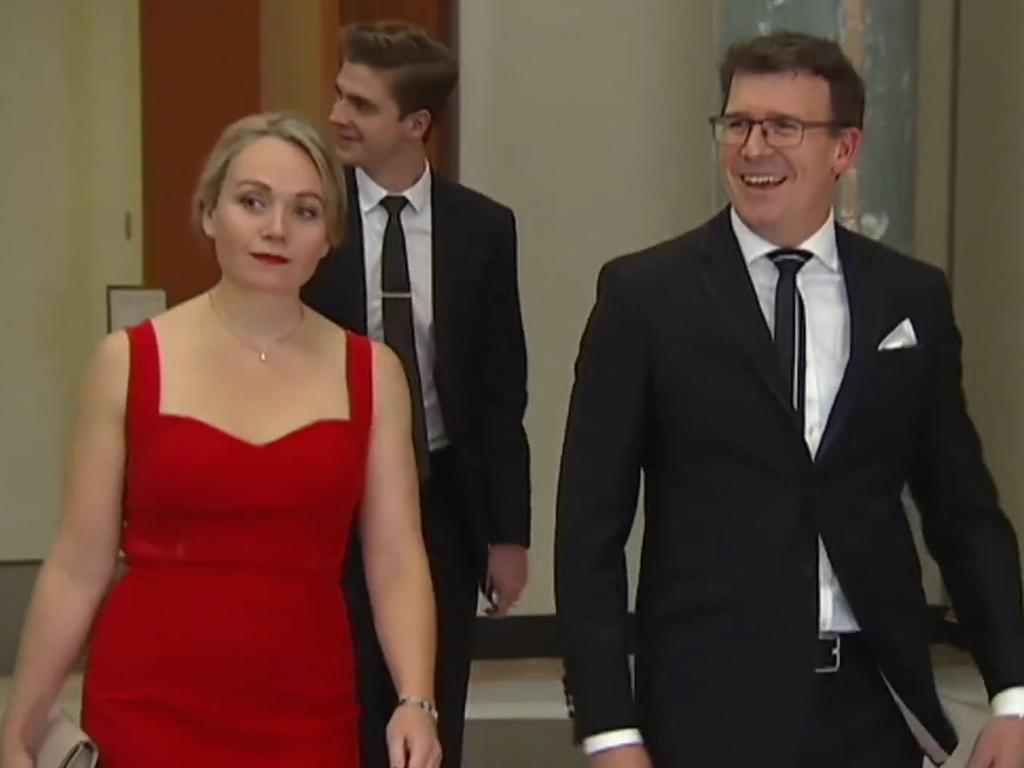Women, work and the power imbalance we rarely talk about
Office romances can be disastrous for all parties when they go horribly wrong. But when one person makes claims that threaten the career of the other, we are entitled to ask if there’s more to it.

These are just some of the issues that Vivienne Thom may have faced when investigating the complaints by Rachelle Miller that her former boss, Education Minister Alan Tudge, was emotionally abusive towards her and, on one occasion, physically abusive. The report was due to be handed to Scott Morrison just over a week ago.
Thom, a former inspector-general of intelligence and security, had her work cut out for her. Tudge co-operated with the investigation. Miller did not. Presumably, Tudge handed over material relevant to the question of whether he breached ministerial standards when he had a relationship with Miller in 2017. If there was a sexual relationship, it predates the so-called “bonk ban” introduced by Malcolm Turnbull when he called an end to relationships in February 2018. Therefore, any breach relates to other ministerial standards of behaviour.
As part of her investigation, Thom may have looked closely at the timing of Miller’s complaints. Their relationship ended in November 2017. Miller’s first complaints against Tudge appeared on a Four Corners program in November 2020. After the Four Corners program, Miller made bullying allegations against Tudge, Michaelia Cash and Cash’s chief of staff. Then late last year, Miller made further claims, dating back four years, that Tudge was on one occasion physically abusive.

Thom will surely have considered what other observers have wondered: why did three years pass before Miller went to the media with her first complaints against Tudge? Why did another year pass before she made further claims against him?
Miller has chosen not to co-operate with two inquiries into her claims. She refused to co-operate with the Department of Finance’s inquiry, led by lawyers Sparke Helmore, into her bullying allegations. The investigation made no adverse findings against Tudge, Cash and Cash’s chief of staff. Miller also chose not to co-operate with Thom’s investigation into Tudge’s behaviour. It is an investigation independent from government and parliament.
Thom is the consummate professional who proved herself adept at handling thorny questions of sexual harassment at the highest levels. She handled the investigation into former High Court judge Dyson Heydon. That was not a “he said/she said” scandal. It was a “he said/they said” one where a number of women made complaints against the former High Court judge and co-operated with Thom’s independent inquiry.
Miller’s refusal to co-operate with the investigation raises serious issues about the extent to which we are prepared to sacrifice some of the foundational principles of our legal system to satisfy some kind of new deal for alleged victims.
Having said she would co-operate with the inquiry, Miller subsequently refused to do so, complaining about the terms of reference of the inquiry, its timetable and about the possibility that Thom’s report, which would be made public, would be redacted to protect legal professional privilege and confidentiality of third parties.

Specifically, Miller complained that the inquiry would not canvass to her satisfaction matters of alleged criminal conduct, presumably her claims that Tudge kicked her in bed.
Miller is free to report allegations of criminal conduct to the police. Police and any prosecution would require criminal standards of proof and evidence about her claims.
Miller cannot have it both ways. Criminal allegations, and findings, against Tudge require a proper criminal investigation. You can’t demand a civil inquiry but complain that it can’t make criminal findings.
Miller makes a similarly flawed complaint when she challenges the rights of third parties to protect their legal professional privilege, privacy, and confidentiality.
It is clear enough that many activists object to longstanding rights of privilege and contractual confidentiality, but that does not make their objections right or desirable.
The famous passage from Robert Bolt’s A Man for All Seasons should be ringing in our ears.
William Roper: “So, now you give the Devil the benefit of law!”
Sir Thomas More: “Yes! What would you do? Cut a great road through the law to get after the Devil?”
William Roper: “Yes, I’d cut down every law in England to do that!”
Sir Thomas More: “Oh? And when the last law was down, and the Devil turned ’round on you, where would you hide, Roper, the laws all being flat? This country is planted thick with laws, from coast to coast, Man’s laws, not God’s! And if you cut them down, and you’re just the man to do it, do you really think you could stand upright in the winds that would blow then? Yes, I’d give the Devil benefit of law, for my own safety’s sake!”
The other, equally fundamental, issue that arises more broadly from the Miller-Tudge entanglement is the need for context and nuance when examining human behaviour. Abusive behaviour should be condemned and punished. However, there is another category of behaviour that doesn’t call for the police or anyone else in clodhopper boots trampling through the debris of a relationship in search of a crime. When a relationship fails through mismatched expectations, that is a private matter.
Unrequited love is shitty. There is no point searching a thesaurus for a better word. It’s visceral. It hurts like hell. It can unleash just about every emotion under the sun, from self-pity to anger to disappointment and vengefulness.

But that is no reason to call in the crime squad or demand some kind of civil investigation, or to look to the #MeToo movement for support.
The #MeToo movement has created a formidable tribe for women to join. Some people are drawn to the allure and support of a tribe. Sometimes the fit is right. But sometimes it is a bad fit. Bad for the credibility of the #MeToo movement. And maybe bad for a woman to jostle to be part of a movement that doesn’t fit her story.
It is true that, for far too long, many workplaces were a law unto themselves. Especially federal parliament, where MPs think they are so special that normal standards of behaviour don’t apply to them.
Consequently, sexual relationships were rife, and sometimes horribly messy, with no rules to guide people. It was high time that changed, and parliament follows standards in the real world.
Alas, that real world is also complicated. Even a formal set of rules will not stop all relationships that start at work. Men and women meet people they are attracted to in a workplace, they get involved, sometimes marry, sometimes have kids. Relationships come apart too. Often for reasons that have nothing to do with bullying, harassment or other forms of mistreatment.
We frequently talk about the power imbalance between people who get involved in the workplace. We talk about the man’s power when he is in a more senior role than the woman. That power imbalance can be real, and it explains why workplace relationships can be bad for women.
We rarely talk about other scenarios involving a different power that may rest with a woman. We don’t talk about a woman’s sexual power. Or a woman’s emotional power. Nor do we talk about the power that a woman may have to make baseless complaints about a sexual relationship that started in the workplace, when that relationship doesn’t turn out as she hoped.
This intimate scenario is only part of the broader weaponisation of harassment and bullying complaints that is poisoning workplaces. There is an observable choreography that starts with a claim, involves lawyers, sometimes PR people too, with escalation and threats of litigation. In the febrile atmosphere of today’s workplaces, mere accusation is often enough to force an employer to stand down or sack the alleged perpetrator.
From the start of the messy story between Miller and Tudge, I keep asking myself how Miller’s story fits into the #MeToo movement. In other words, if these two consenting adults, both in their 40s, had formed a more serious relationship, as many people do after meeting in the workplace, would we have heard from Miller?








Delving into the private lives of others is fraught. But when a sexual relationship in the workplace ends, and later – much later – one person makes claims that threaten to end the career of their former lover, we are entitled to ask whether there is more to it. Only context can tell us whether the imbroglio deserves to be packaged up as part of the #MeToo movement. Is the woman a victim of abusive behaviour by a man? Or is something else going on? Is this a sad, but not uncommon, case of unmatched affections?